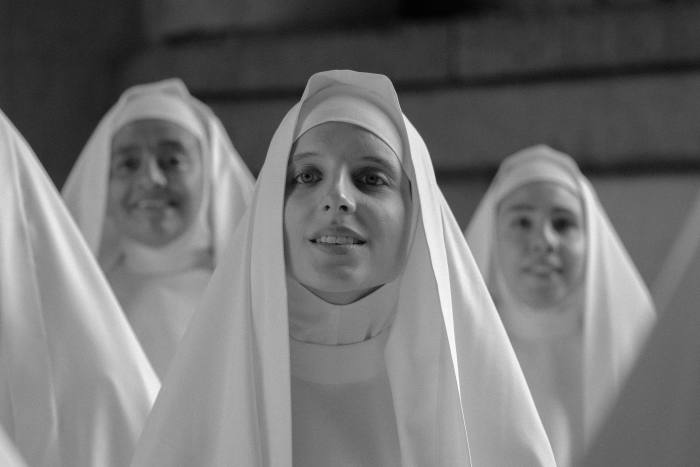Blood
El Conde film review — Pinochet and Thatcher reborn as vampires in blood-soaked satire
Pablo Larraín is fast becoming cinema’s foremost purveyor of cockeyed biopics. Joining Neruda, Jackie and Spencer there now comes The Count, a pitch-black (and white) portrait of Augusto Pinochet that imagines the Chilean dictator as a 250-year-old bloodsucker longing to die.
We begin in a shabby room lined with fascist tchotchkes, the Radetzky March playing on a scratchy turntable. Here lies the aged capitán-general, occupying a ramshackle building in barren surroundings that suggest moral ruin and abandonment. This is vampirism stripped of its sexiness and glamour, the Count (Jaime Vadell) a creaky and embittered figure cast aside by an “ungrateful” nation.
A flashback to Louis XVI’s Paris reveals his origins, the screen erupting in ultraviolence: first a sledgehammer destroying a sex worker’s face, then the young Count seen licking Marie Antoinette’s blood off the guillotine. Later, still-beating hearts will be plucked from bodies and put in blenders to produce high-protein smoothies that prolong the Count’s life. There are times it’s a relief the film is shot in monochrome.
The young Count flees France incognito and settles in “an insignificant corner of South America”, marrying Lucía Hiriart (Gloria Münchmeyer), a woman “even more perverse and unscrupulous than him”. He is painted as a pimp in a banana-republic uniform, she as a peasant decked out in furs. But when the political tide turns, the cowardly Count fakes his own death — his lying in state a lie, his transparent coffin both saluted and spat on.
The film’s irony-dripping narration is provided by Pinochet’s bosom buddy Margaret Thatcher, their friendship forged in reality during the Falklands war but here given a much more intimate and icky significance. In her breathy, butter-wouldn’t-melt tones, the Iron Lady (Stella Gonet) informs us that while the connoisseur Count has sampled blood from every corner of the world, English blood is his favourite; that of Chilean workers is the equivalent of cheap plonk.
Several times we seem him don a cape and take to the skies in search of sustenance. The sight of him climbing into the sky is one of the film’s more striking images but, while suggesting monstrous bloodlust, it risks giving him mythic status, just as painting him as pathetic risks evoking sympathy for the diabolical. It’s a line the film treads carefully but not without wobbling.
There are no such problems with Pinochet’s children. These feckless scavengers are painted as a quintet of dimwits in anoraks who bicker over birthrights, clearly having already inherited their parents’ total lack of qualms. Thus Larraín smuggles in details of Pinochet’s financial corruption as well as his crimes against humanity under the guise of horror comedy.
Family be damned, the Count is more excited by the arrival of a fresh-faced exorcist-accountant nun who is sent to audit his accounts and his soul. If the virginal Carmencita (Paula Luchsinger) represents the Catholic church’s role during the dictatorship, it speaks volumes that she is seduced by the devil himself. Larraín’s satire isn’t always subtle and it becomes scattershot as the film wears on; for the skewering of a monstrous figure, it’s not quite a stake through the heart.
The director has spoken in broad terms about “the rise of the right in many countries”, but it seems no coincidence that it follows the strides made in recent years by Chile’s far-right Republican party, whose leader José Antonio Kast has warm words for the dictator. Larraín seemingly wants to remind us that Pinochetism isn’t quite dead yet. After all, evil never dies: it just bides its time and makes another smoothie.
★★★☆☆
In cinemas from September 7 and on Netflix from September 15
Venice Film Festival continues to September 9, labiennale.org

